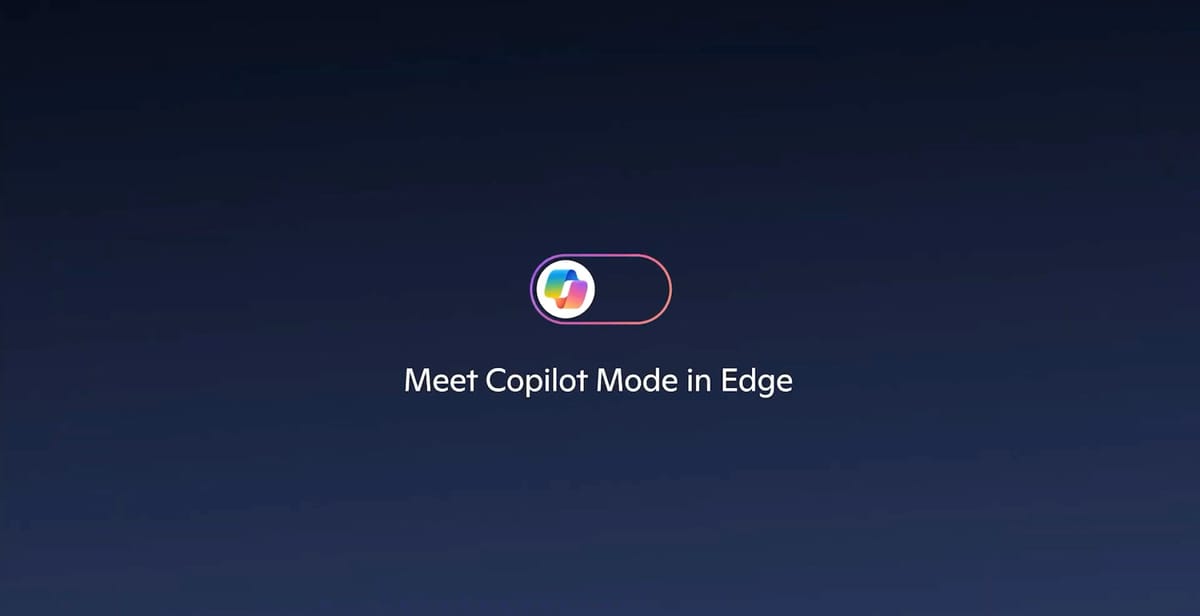
Microsoft rolled out expanded features for Copilot Mode in Edge on Thursday, bringing voice-activated task automation and AI-generated browsing histories to its browser. The timing's hard to ignore—OpenAI launched ChatGPT Atlas just two days earlier.
Key Points:
- Copilot Actions lets Edge handle multi-step tasks like unsubscribing from emails or making restaurant reservations through voice or chat
- Journeys automatically groups past browsing sessions by topic so users can resume projects without manually reopening tabs
- Both features are in limited US preview and require explicit permission to access browsing history
The new features build on Copilot Mode's July launch, which added basic AI integration like voice navigation and multi-tab reasoning. Now Microsoft's pushing deeper into autonomous browsing territory—exactly what OpenAI pitched with Atlas.
Copilot Actions works through natural language commands. Ask it to clear your cache or unsubscribe from shopping newsletters, and it'll handle the steps. Microsoft says voice control for complex tasks is "coming soon," though the current version already handles simple actions like opening webpages.
Journeys tackles the tab hoarder problem. Instead of bookmarking dozens of tabs for a project you'll maybe return to, Edge automatically clusters related browsing sessions and suggests next steps. Microsoft's example: researching a business idea, then picking up months later with all your previous articles, videos, and context ready to go.
The privacy angle gets emphasized throughout Microsoft's announcement—probably because giving AI access to your entire browsing history should make people uncomfortable. Everything's opt-in, with visual cues showing when Copilot's active. Your data stays under Microsoft's privacy statement, they stress, and you can toggle everything off.
The resemblance to Atlas isn't subtle. Both browsers put their AI assistant front and center on new tabs. Both promise to handle tasks for you. Both need extensive access to work properly. TechCrunch noted the products look "pretty much the same," with the main differences being background colors and UI conventions.
Atlas launched with immediate security concerns—prompt injection attacks remain "an unsolved problem" according to OpenAI's own chief information security officer, with experts warning malicious websites could manipulate the AI into stealing data or draining bank accounts. Microsoft hasn't addressed whether Edge faces similar vulnerabilities.
The browser race is getting crowded fast. Perplexity launched its Comet browser in July, and The Browser Company released Dia. Google's adding AI to Chrome. Everyone's betting the same thing: that AI changes how people use browsers enough to unseat Chrome's dominance.
Whether any of these products actually matter outside Silicon Valley remains the real question. Chrome has 3 billion users. Edge has been trying to gain ground for years with mixed results. Adding AI might change that calculus—or it might just be another feature nobody asked for that requires handing over more personal data than seems wise.
Microsoft emphasizes Edge includes AI-powered scareware blocking and 24/7 password breach monitoring for security. Copilot Mode works on Windows and Mac now, with mobile "coming soon." You can try it at aka.ms/copilot-mode, though the headlining features are US-only for now.

